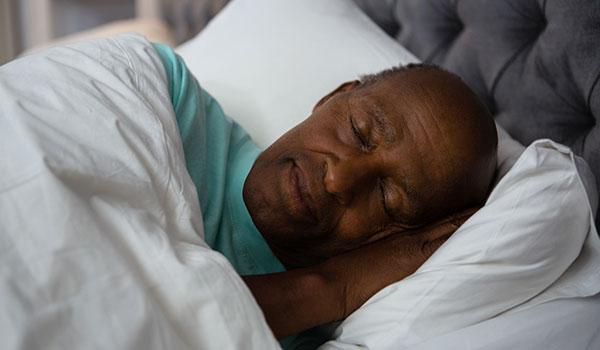7 Drug-Free Sleep Solutions

Like most family physicians, I talk about sleep a lot with my patients. They tell me they can’t fall asleep or stay asleep or that they don’t feel refreshed when they wake up from sleep. Usually, these patients – especially those older than 65 – would like either a prescription for sleep medication or my advice on which over-the-counter product is best.
They’re not alone: 46 percent of older Americans have trouble falling asleep one or more nights per week, according to the National Poll on Healthy Aging. One in three older adults use medication for their insomnia.
While sleeping pills (and even the supplement melatonin), do have their place, they’re not always necessary. Most of the time, sleep problems can be solved with other methods.
At our family medicine practice in northern Virginia, my colleagues and I regularly counsel patients on steps they can take to get a better night’s sleep without resorting to pills. These are some of the proven strategies we would recommend to anyone.
1. Review all your medications and supplements with your primary care doctor. You might be surprised to find out that one or more of these interferes with sleep.
2. Be honest about anxiety. Many patients are more comfortable talking about their arthritis than their anxiety, but they’re both important health issues. Anxiety can keep you up at night (just like pain can), and it’s treatable – if your doctor knows about it.
3. Cut back on regular and decaf coffee. The effects of caffeine can last for up to eight hours, so you’ll want to avoid regular coffee (and soda) well before bedtime. However, decaf coffee isn’t 100 percent caffeine free. A cup after dinner won’t keep you up, but drinking a pot throughout the afternoon and evening just might.
4. Track your alcohol consumption. Do you have a glass of wine with dinner or a beer or two watching Monday Night Football? Even if you don’t drink much, alcohol can lead to light or restless sleep.
5. Practice smart sleep hygiene. Keep the bedroom cool and dark, avoid screen time (TV, computer or phone) before bed, create a relaxing routine that may include reading, a bath or quiet music. It’s simple, it works, and it’s not often followed. Give it a shot.
6. Rethink bedtime snacking. Hungry at 9 p.m.? Don’t reach into the fridge for a slice of cold pizza or other dinner leftovers. If you want to sleep well, skip heavy or spicy foods before bed and go for a light snack instead.
7. Consider therapy. Lack of sleep can have a major impact on your health and well-being, so I recommend you take it seriously. If other methods have failed to get you the sleep you want, ask your MDVIP-affiliated physician about therapy. Specifically, hypnotherapy and cognitive behavioral therapy can help you drift off to sleep when your head hits the pillow – not just for a night, but for a lifetime.
This blog reflects the medical opinion of Dr. Bret Wohler, an MDVIP-affiliated, board-certified family practice physician, and not necessarily the opinion of all physicians in the MDVIP national network.

